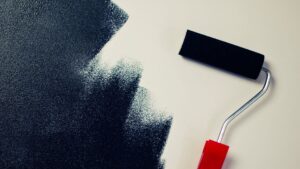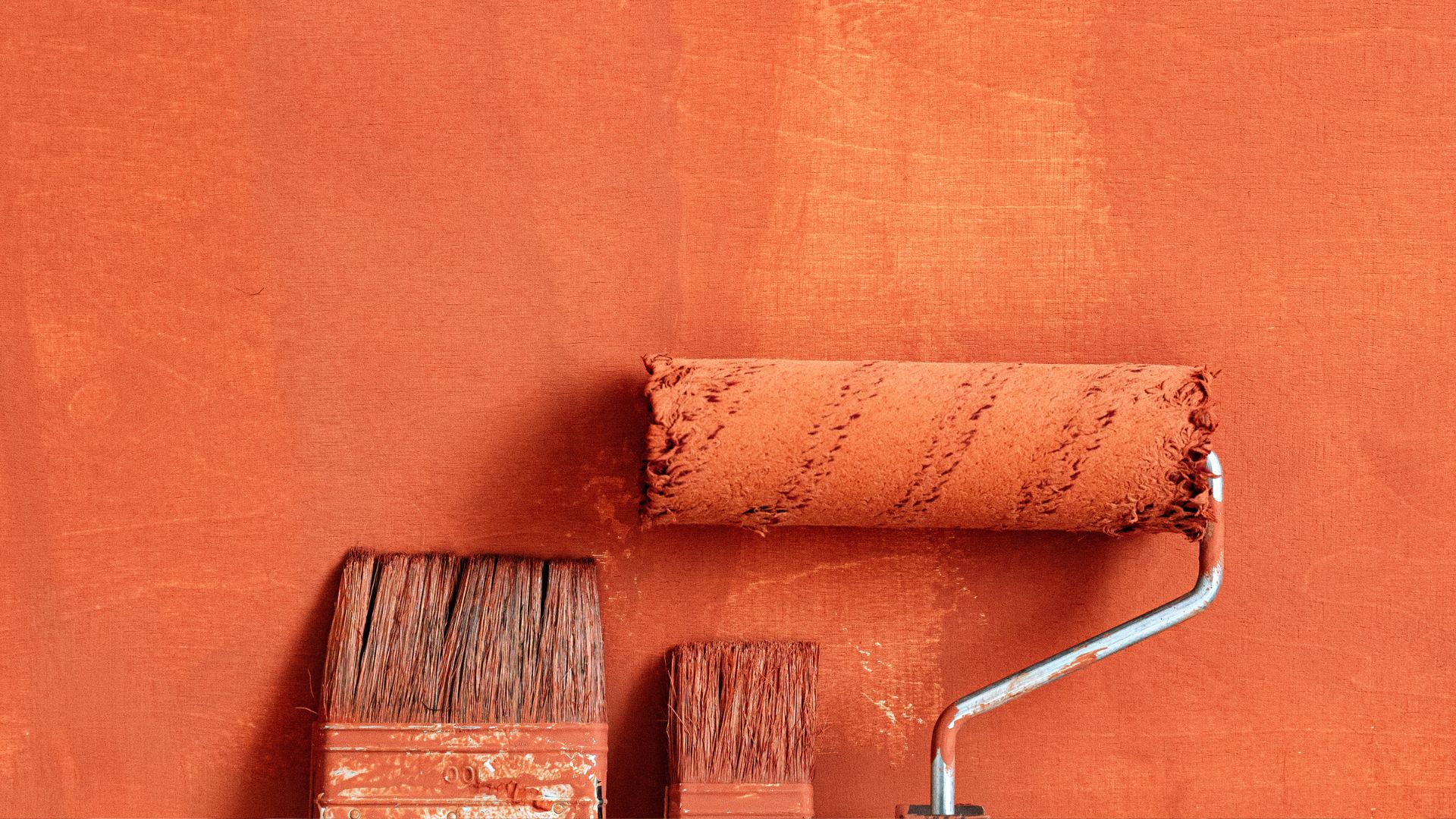Painting a mural is an exciting and expressive way to transform a space, but selecting the right paintbrush for different mural elements can significantly impact your artistic outcome. Let’s dive into the world of mural painting brushes and explore how to match them with various mural elements to achieve the best results.
Understanding Paintbrush Types
1. Flat Brushes
Flat brushes, characterized by their square-shaped bristles, are versatile and ideal for covering large areas efficiently. They work exceptionally well for painting broad backgrounds or filling in large sections of the mural.
2. Round Brushes
Round brushes have a pointed tip and are fantastic for adding detail and precision. They’re perfect for outlining shapes, creating intricate designs, and adding finer details to your mural.

3. Filbert Brushes
Filbert brushes have an oval-shaped, rounded tip, combining the benefits of flat and round brushes. They’re great for blending colors, creating soft edges, and adding subtle curves or details to your mural.
4. Fan Brushes
Fan brushes have thin, spread-out bristles that resemble a fan. They’re excellent for creating texture, blending colors, and adding foliage or other natural elements to your mural.
Matching Brushes to Mural Elements
1. Backgrounds and Large Areas
For painting expansive backgrounds or covering large areas of your mural, opt for larger flat brushes. They allow for quicker coverage and smoother application of paint.
2. Details and Outlines
When working on intricate details, outlines, or fine lines, choose round brushes. Their pointed tips provide precision and control, enabling you to create sharp, defined elements within your mural.
3. Blending and Soft Edges
Filbert brushes are fantastic for blending colors seamlessly and creating soft edges between different elements of your mural. Their rounded shape allows for smooth transitions and gentle curves.
4. Texture and Special Effects
If your mural requires texture or special effects like foliage, clouds, or other natural elements, a fan brush can be your go-to tool. Its unique shape allows for the creation of realistic textures and nuanced effects.
So,…
Selecting the right paintbrush for different mural elements is crucial for achieving the desired artistic effects and bringing your vision to life. By understanding the characteristics of various paintbrush types and matching them to specific mural elements, you can enhance your mural painting experience and create stunning, impactful artworks.
Remember, experimenting with different brushes and techniques can also spark creativity and lead to unique artistic expressions in your mural painting journey.
For more insights into mural painting techniques and tips, check out these helpful resources:
- Mural Painting Tips and Tricks – Artists Network
- Choosing the Right Brushes for Your Artwork – Art is Fun
- Creating Realistic Textures in Murals – Mural Joe
Here’s more on how specific paintbrushes can elevate different mural elements:
Special Considerations for Mural Painting
Wall Texture
When painting on textured surfaces, consider using brushes that accommodate the texture. Stiffer bristles can navigate rough surfaces better, ensuring even coverage and maintaining the desired detail.
Acrylic vs. Oil Paints
The type of paint used in murals can influence brush selection. Acrylic paints tend to dry quickly, so brushes that retain moisture well can be advantageous. For oil paints, brushes that handle thicker paints and allow for better blending might be preferable.
Layering and Depth
Layering colors to create depth in a mural requires brushes that can blend seamlessly. Experiment with different brush types to find those that allow for smooth transitions between colors and layers.
Maintaining Brushes
Proper care of your brushes ensures longevity and consistent performance. Clean your brushes thoroughly after each use, using appropriate solvents for the type of paint used, and store them properly to maintain their shape.
Choosing Quality Brushes
Investing in high-quality brushes can significantly impact the outcome of your mural. While it might seem tempting to opt for cheaper options, quality brushes tend to hold paint better, provide better control, and last longer, ultimately enhancing the quality of your artwork.
Embracing Creativity
Remember, there are no strict rules in art. While understanding the recommended brush types for specific mural elements is essential, don’t be afraid to experiment. Mixing and matching different brushes can lead to unique textures, styles, and visual effects in your murals.
Conclusion
Selecting the right paintbrushes for mural elements involves understanding the characteristics of various brush types and considering the specific requirements of your mural. By choosing brushes tailored to different elements, surfaces, and painting techniques, you can elevate your mural painting experience and create captivating artworks.
Comparison tabular
Here’s a comparison table summarizing the key characteristics and recommended uses of different paintbrush types for mural painting:
| Paintbrush Type | Characteristics | Recommended Uses |
|---|---|---|
| Flat Brushes | Square-shaped bristles, wide and flat profile | Ideal for covering large areas, backgrounds, and quick paint application |
| Round Brushes | Pointed tip, versatile, offers precision | Great for outlining shapes, adding details, and fine lines |
| Filbert Brushes | Oval-shaped, rounded tip, combines flat and round brush benefits | Suitable for blending colors, soft edges, and adding curves/details |
| Fan Brushes | Thin, spread-out bristles resembling a fan | Excellent for creating texture, blending colors, and natural elements |
| Mural Elements | Recommended Brushes |
|---|---|
| Backgrounds and Large Areas | Flat Brushes |
| Details and Outlines | Round Brushes |
| Blending and Soft Edges | Filbert Brushes |
| Texture and Special Effects | Fan Brushes |
This table simplifies the characteristics and recommended uses of each brush type for various mural elements, aiding artists in quickly identifying the suitable brushes for their painting needs.
Wrapping up
Remember, while this guide serves as a compass for selecting the right brushes, your artistic exploration knows no bounds. Embrace experimentation, mix and match brushes, and let your imagination guide your strokes.
May your mural painting endeavors be adorned with bold backgrounds, intricate details, seamless blends, and captivating textures, all crafted with the strokes of the perfect paintbrushes.

For over a decade, I’ve been Mike, an artist, crafter, and designer deeply immersed in the Croc world. I thrive on crafting unique, size-inclusive patterns, fostering creativity, and sharing them on ktforum.com. My designs aim to ignite your creative spark and delight you, ensuring clarity and ease of use through rigorous testing. Join me in expressing your creative flair and showcasing your craft with joy.
Related Posts
- Choosing the Right Brush for Painting on Canvas Walls
When it comes to painting on canvas walls, selecting the right brush can significantly impact…
- Accessibility in Mural Painting: Scaffolding vs. Ladders
When it comes to mural painting, ensuring accessibility isn’t just a matter of convenience it's…
- How to choose the right brushes for the mural
Selecting the right brushes is crucial when painting a mural as they play a pivotal…
- The Best Time of Day for Painting an Outdoor Mural
When it comes to painting an outdoor mural, choosing the right time of day can…

